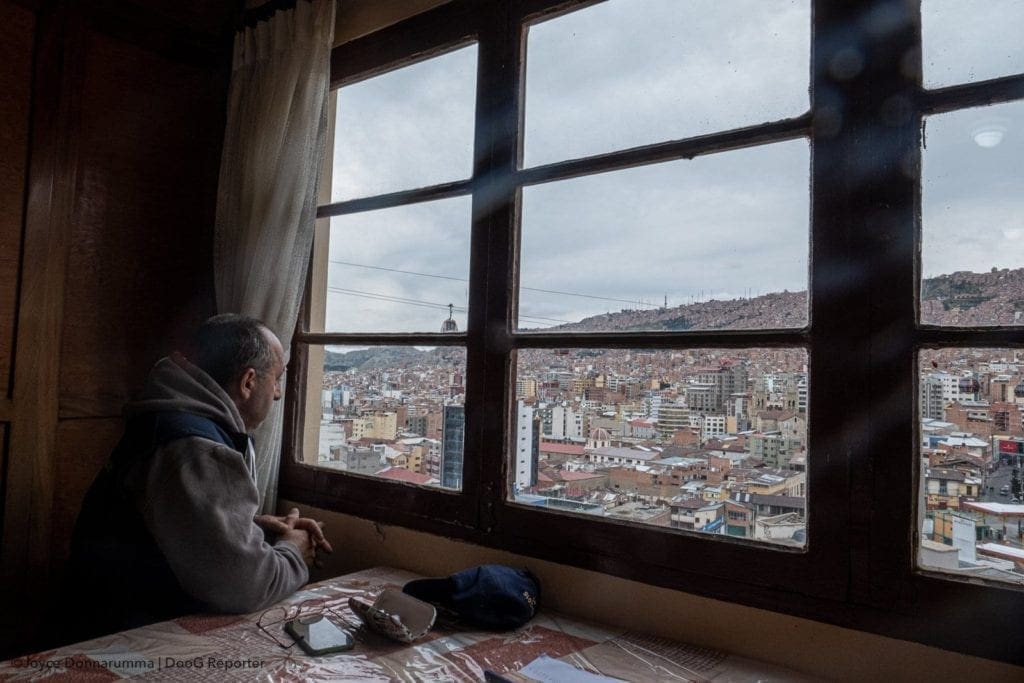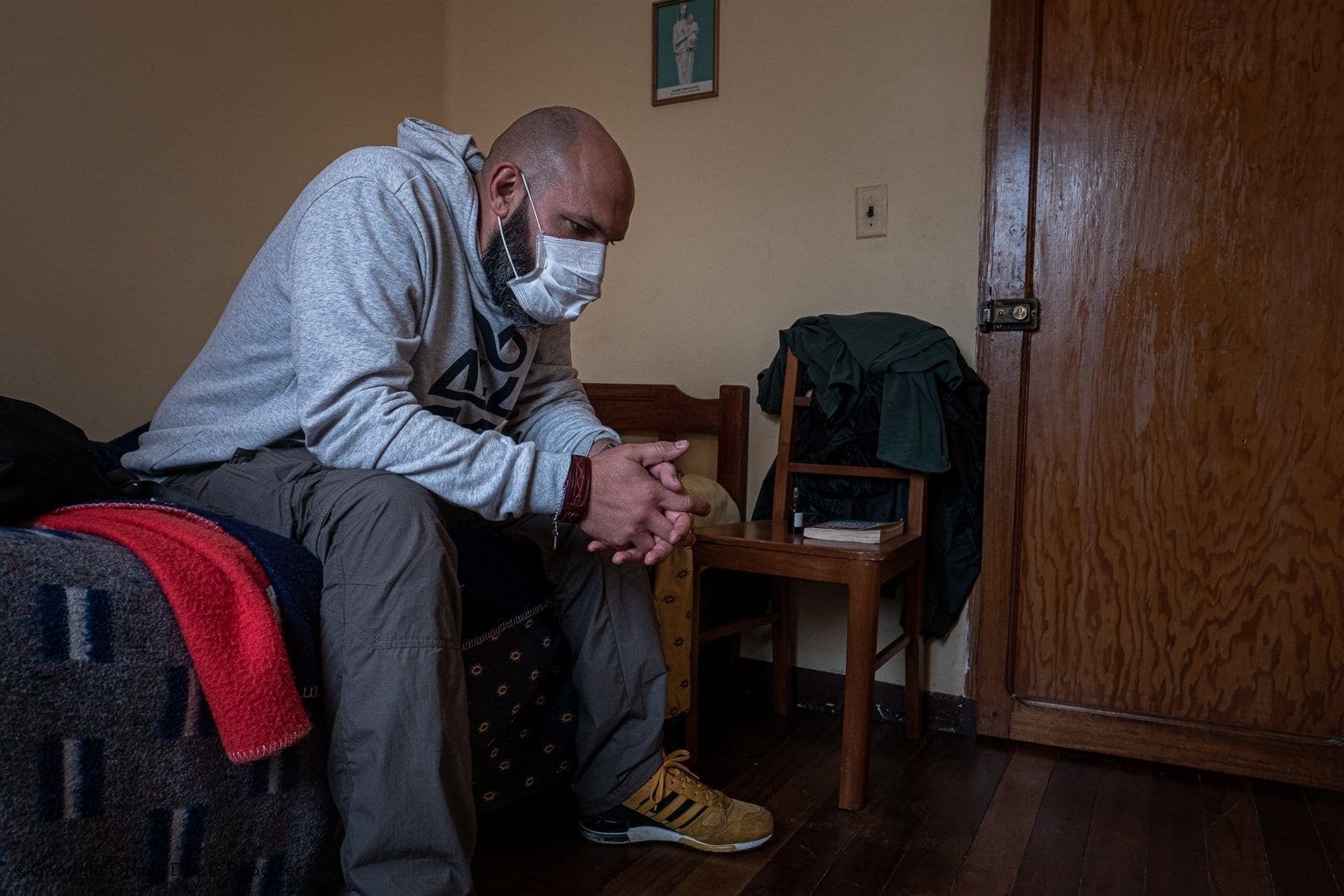La Paz, Bolivia | March 2020
These days, in our imagination, we would find ourselves in the thousand-year-old Inca geography at the heart of Peru. We would have met – and experienced – some of the small Catholic missions scattered across the Andean continent, the goal of our long trip to South America.
But we will not. We were stopped.
Nearly two months have passed since, in a childlike enthusiasm, each of us, in the port of Valparaiso, found his motorbike and merging with it, continued that intimate dialogue that only a motorcyclist knows how to reserve for his motorbike.
From Chile, heading to the far south in the Land illuminated by the fires of ancient tribes, we chased the endless Patagonia having north as our only direction.
The wheels of the motorcycle bit into dust and wind (cit.) and our thoughts remained on the miles ahead of us: on the experiences we would have liked to have, the people we would have met, the stories we would have heard, the dogs we would have dodged along the Ruta.
On what we would have shared and how much we would have been able to bring back home.
After a little over 10,000 kilometres through stones, dirt, and asphalt roads, turning our backs on nostalgic Buenos Aires, our eyes were dazzled and confused by the powerful yet impetuous force of Paraguay – a land of Jesuit missions – to arrive at the Bolivian border. Country of deserts, forests, mines, and great altitudes. The breathing became heavier and heavier and the Mate de Coca was not always able to alleviate the strain of the 4,000 metres.
After three weary motorbike breakdowns, repaired to the side of deserted roads, we set off again and finally arrived in the capital city, La Paz, riding through a jarring, noisy and suffocating suburbia, child of George Miller’s imagination. And here we are catapulted into a dimension very different from the natural spectacle of the previous days. We prepared for the last part of our wanderings: the border with Peru, only 120 kilometres away.
The news from the world – for us in the East – was still confined to the thought of our families: Italian, Spanish, German, and Austrian. With the naïve arrogance typical of the traveler in the right, we still didn’t know that a few hours later, in the cold hours of an impending Bolivian night, an obtuse bureaucracy would stop us at the border with the last of the countries on our itinerary.
A mishap of procedure, a misunderstanding of time, perhaps a time difference not considered, but for more than 4 hours we found ourselves stowaways on Peruvian soil, with no real chance to continue or to return. Simply: stop!
At 3 am we returned to La Paz with cold bones and eyes scratchy from the night’s rain. A disappointment that clouded the helmet visor from within, a thousand thoughts about an evil that in its petty nature, the coronavirus, had for the first time touched and nicked even our goal: to conclude the mission and make good on the commitment we had made to those who, along with us, believed in and supported this peace expedition.
Now all that remains is to go back to Italy. But how?
Back to Italy: three words that we still cannot say with any serenity because there is no date yet. Because there is no starting point yet. Because every day many options appear and disappear. Because a simple ‘how’ is currently not available.
The borders were closed and the airspaces were as well. Airlines offer rebooking vouchers from unreachable cities or on indefinable dates, while we would only want a flight to Europe. Now. Or at least a definite date.
Stopped, stranded, and helpless, we began a journey within a journey. A journey into the reasons that each constructs himself. Prisoners of ourselves. With a useless mask over our faces, we delude ourselves in immunity from evil.
Every day we hear the news from the world – nowadays less and less oriental for us – but the only ones we want to hear are delayed: those from the offices that recognise our right to hold a passport of a strong nation.
Stuck in the city where at night the starry sky turns upside down and illuminates the earth, we now admire it boredly from the large windows in the panorama of this red-brick metropolis.
And me, Gabriele, who would like to walk those calle (streets) for the sole reason of my being there – to discover stories and bring back tales – I look disenchanted at what I cannot reach.



